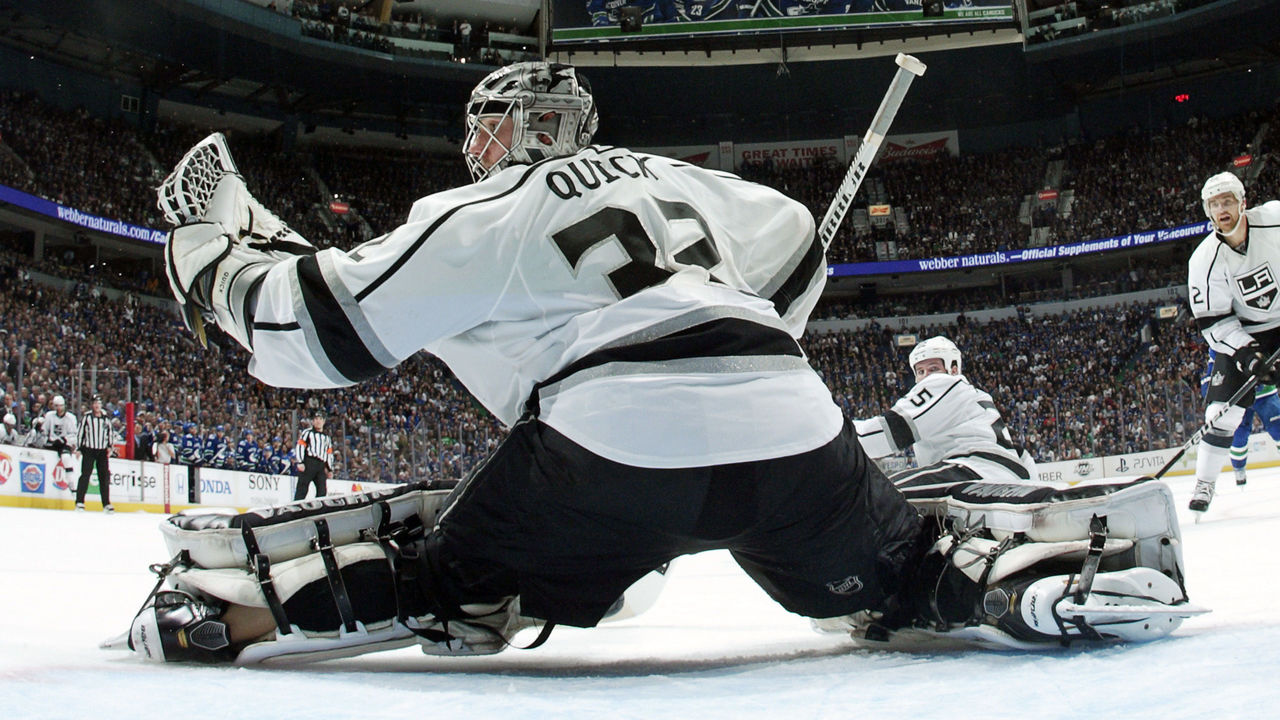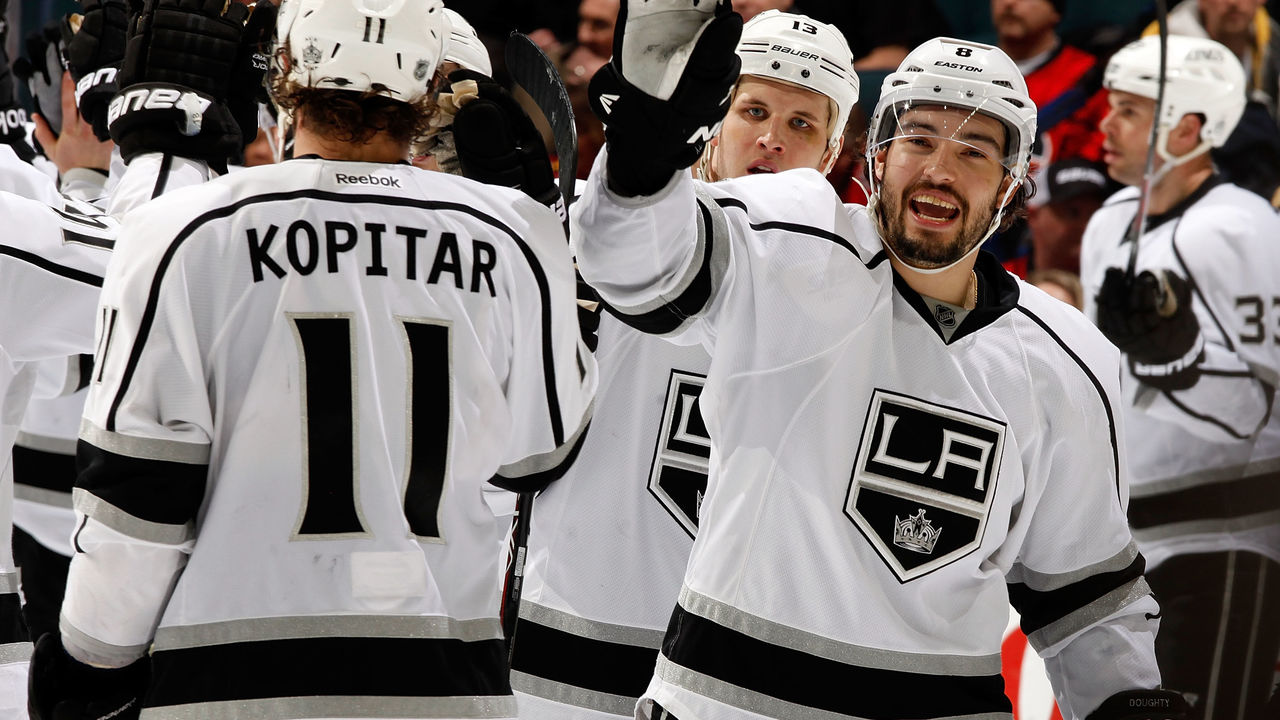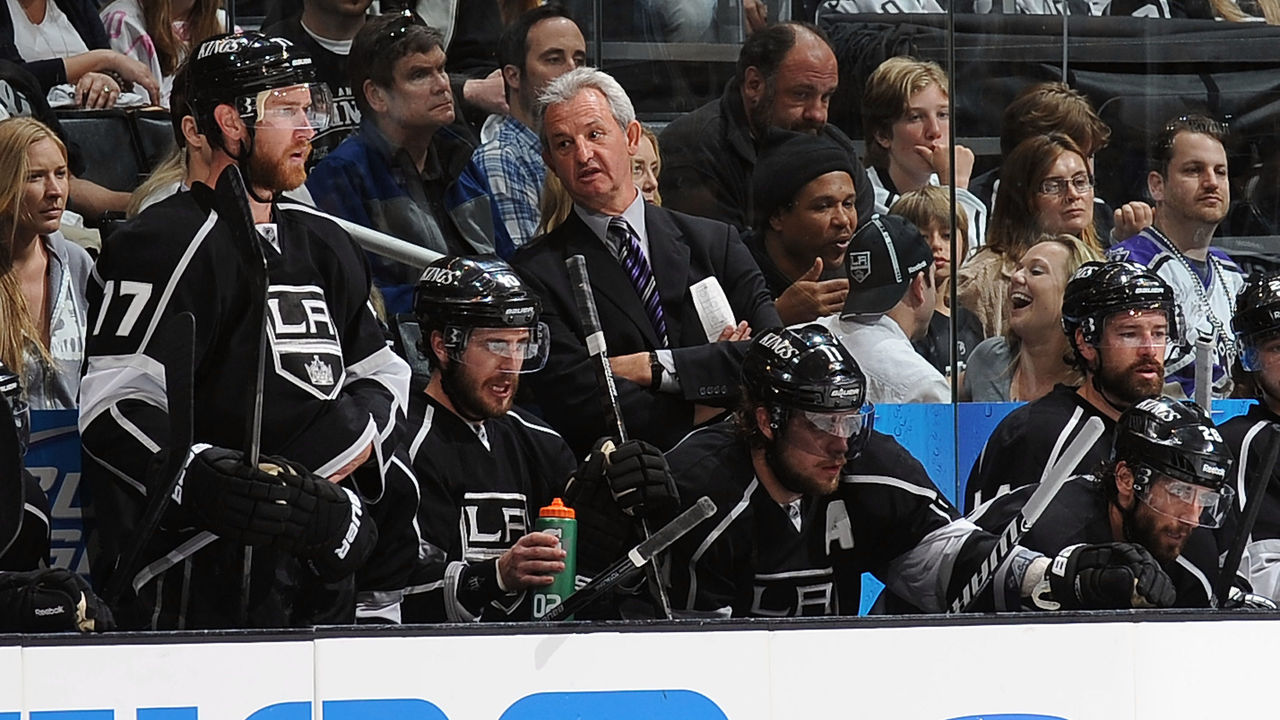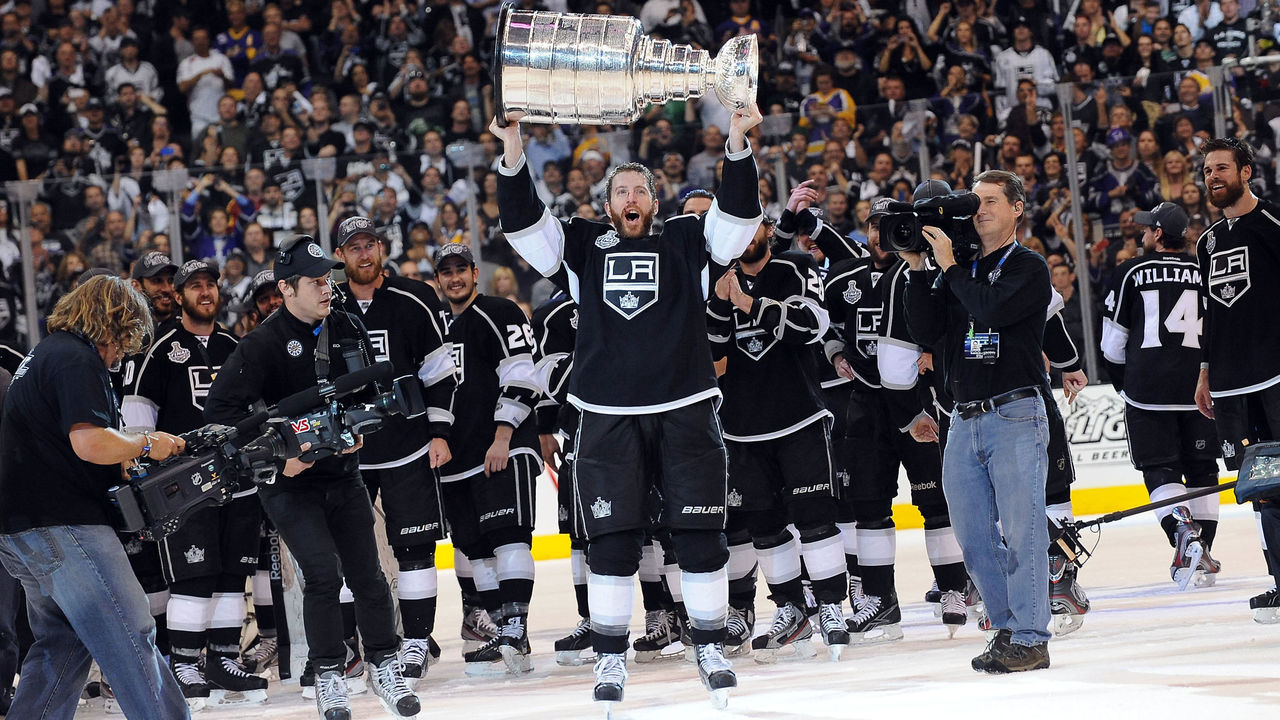Following our recent series on the best teams never to win their league's championship, we're flipping the concept. This series will examine a selection of the most unlikely teams to reach the mountaintop. These teams can be ones that got hot at the right time, or those who belong to franchises that have not often tasted the Champagne of champions. Previous entries covered MLB, NFL, NBA, and NCAA football.
Heading into the 2012 NHL playoffs, Eric Tulsky, then a Philadelphia Flyers blogger, used advanced metrics to guide his predictions and went off the grid with a significant upset in the first round.
Tulsky argued the Los Angeles Kings - the No. 8 seed in the Western Conference - were a sleeping giant fully capable of toppling the mighty Vancouver Canucks. On the surface, it was exceptionally bold to take the Kings over the President's Trophy winners. But Tulsky, a hockey analytics pioneer who's now the vice president of hockey management and strategy for the Carolina Hurricanes, presented a logical counterpoint.
"In their last 13 games, the Kings played a tough schedule (eight playoff teams) and outshot all 13 opponents by an aggregate 451-302, with only two regulation losses," Tulsky wrote. "Combine dominant possession with (Jonathan) Quick's great play and the Kings are no typical No. 8 seed; they've been a great team since the (Jeff) Carter-(Jack) Johnson trade."
All four panelists picking alongside Tulsky took the Canucks.

L.A. needed just five games to dispose of Vancouver. It was a bracket-busting series victory that kickstarted an incredible 16-4 playoff run for a team that lost more games than it won during a trying regular season. The Kings made NHL history by sweeping the No. 2 St. Louis Blues, taking down the third-seeded Arizona Coyotes in five games, and defeating the Eastern Conference champion New Jersey Devils in six.
The 2011-12 Kings - who needed a win in Game 82 of the regular season to clinch their playoff spot - are the only eighth seed ever to win the Stanley Cup.
It was an epic turn of events for a franchise that failed to claim a title in its first 43 years of existence, eight of which featured Wayne Gretzky. This development gave validation to the thought processes of Tulsky and his stats-obsessed peers. Conversations and articles about the predictive nature of advanced stats - Corsi and PDO among those most often cited - suddenly had the backing of an unlikely champion.
Now, let's be clear: the Kings didn't come out of nowhere. They weren't a Cinderella story or a traditional underdog. Ownership had no problem spending money, general manager Dean Lombardi assembled a balanced lineup, and the franchise was on an upward trajectory. In fact, expectations were reasonably high following an eventful 2011 offseason.
The club's core, led by 26-year-old goalie Quick, 22-year-old defenseman Drew Doughty, and mid-20s forwards Anze Kopitar and Dustin Brown, was upgraded through trades and free agency. Lombardi added a pair of point-producers in center Mike Richards and winger Simon Gagne. Richards, 26, was acquired from the Flyers in a blockbuster swap involving up-and-comers Wayne Simmonds and Brayden Schenn, while the 31-year-old Gagne signed a two-year deal.

But the Kings stumbled out of the gate. Doughty, who just wrapped up a contract dispute, was a little rusty, and the team as a whole couldn't find its footing, losing nine of 16 games to open the campaign. Offensively, the Kings were almost exclusively reliant on Kopitar, Richards, and veteran Justin Williams. During that stretch, L.A. scored three or more goals only five times.
An inability to bury scoring opportunities is what made the team so polarizing throughout the regular season. It was equipped with ample firepower but owned the 29th-ranked offense and 17th-ranked power play, in part because of a league-worst shooting percentage. Championship teams tend to ice a formidable attack, not one well below the league average.
"We're a good team, but we're not playing like one," Brown, the team captain, said on Dec. 10. "We need more intensity, more desperation, and that starts with individuals. (No one can) do it alone, but you've got to get yourself ready, as a player on this team. Right now, we don't have enough guys with that desperation in their game."
Head coach Terry Murray was canned two days later, after which assistant John Stevens assumed the interim role for four games before longtime NHL bench boss Darryl Sutter took over. The leadership change didn't result in instant success and, as the calendar flipped to 2012, the Kings owned an unremarkable 19-14-6 record. Luckily for them, they competed in the woeful Pacific and were somehow leading the division.

Sutter urged the Kings to be more assertive, preaching constant puck pressure and an aggressive forecheck. And why not, really. There was no fluff on the roster; virtually every player - even skilled guys like Kopitar, Richards, and Doughty - had spunk. Plus, the Kings could afford to take extra chances with a stingy defense and all-world netminder Quick providing insurance.
Then came the turning point: the Carter-Johnson trade on Feb. 23. Lombardi acquired Carter, a 27-year-old with a wicked wrist shot and a nose for the net, from the Columbus Blue Jackets for the 25-year-old blue-liner and a first-round pick.
"If we're 15th or 20th in the league, where I kind of projected offensively, I'm still looking for this deal. But I don't like the fact that the projection is off, on where we should be starting this deal from," Lombardi said after the trade, unhappy that the Kings were last in the league in scoring with just 129 goals in 61 games. "Part of that, again, I think is the way our secondary scoring dried up, which would take the heat off our top guys, who need to be better. That's the only troubling thing."
Then, down the stretch, the Kings became a force. They won 13 of 18 games by scoring the NHL's fifth-most goals per game, owning the top-ranked power play, and continuing to crush opponents on the shot counter. At the end of the regular season, those offensive numbers (still cringe-worthy over 82 games) were balanced out by a second-ranked defense, fourth-ranked penalty kill, second-ranked Corsi, third-ranked five-on-five scoring-chance percentage, and sixth-ranked five-on-five expected-goals percentage. Not too shabby.

Still, even optimistic Kings fans and die-hard supporters of the analytics movement surely understood the other side of the argument heading into a best-of-seven series with the Canucks.
Vancouver, armed with the marvelous Sedin brothers, perennial Selke Trophy candidate Ryan Kesler, and All-Star goalie Roberto Luongo, earned 14 more points during the regular season and was just one year removed from losing in Game 7 of the Stanley Cup Final to the Boston Bruins. The Canucks would not be an easy out.
Also, playoff hockey exposes weaknesses. Would the Kings' 7.5% shooting rate actually dip to a new low with the intensity ratcheted up and time and space taken away? The randomness of hockey can go both ways. It can benefit you one day and harm you the next. You can play the "right way" and still lose four of seven. The 40-27-15 club that couldn't get its act together until the final month of the regular season wasn't an obvious choice, even if the underlying data strongly hinted at a potential breakthrough.
But Tulsky was right, as the Kings' months-long relationship with poor puck luck ended. They didn't let their foot off the gas, controlled the play, and the goals came flooding in. L.A. opened in Vancouver with a pair of 4-2 wins and Quick made 41 saves back stateside in a 1-0 victory in Game 3.
The Kings scored four or more goals in seven of the 15 games they played during the next three rounds, which concluded with a 6-1 win at home against the Devils to capture the Cup.
Quick posted a disgusting .946 save percentage to earn the Conn Smythe Trophy as playoff MVP. Sutter and Co. thumbed their nose at home-ice advantage, winning Games 1 and 2 of all four playoff series in their opponents' buildings.
The Kings looked like the best version of themselves - the one lurking beneath the surface for a large chunk of the year - and the most memorable eighth seed of all time put together an immaculate 16 wins in 20 games.
John Matisz is theScore's national hockey writer.
Copyright © 2020 Score Media Ventures Inc. All rights reserved. Certain content reproduced under license.